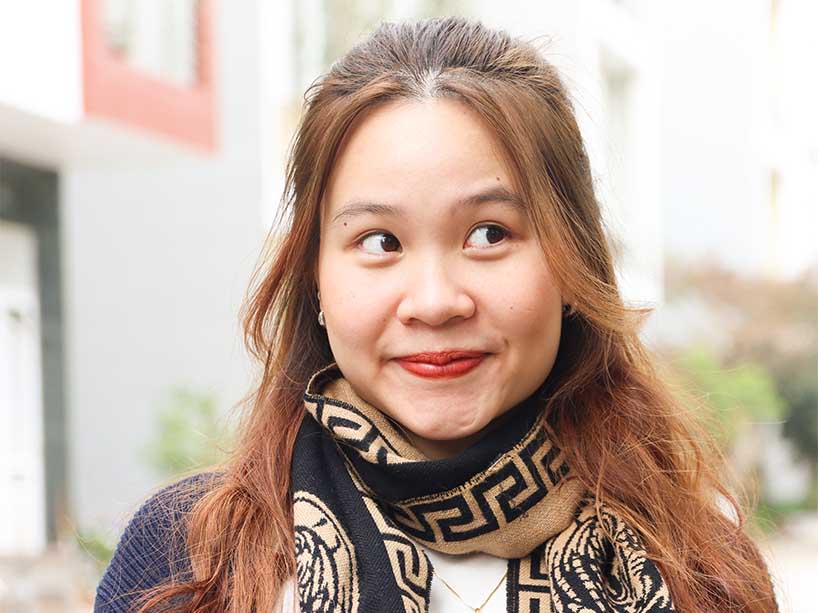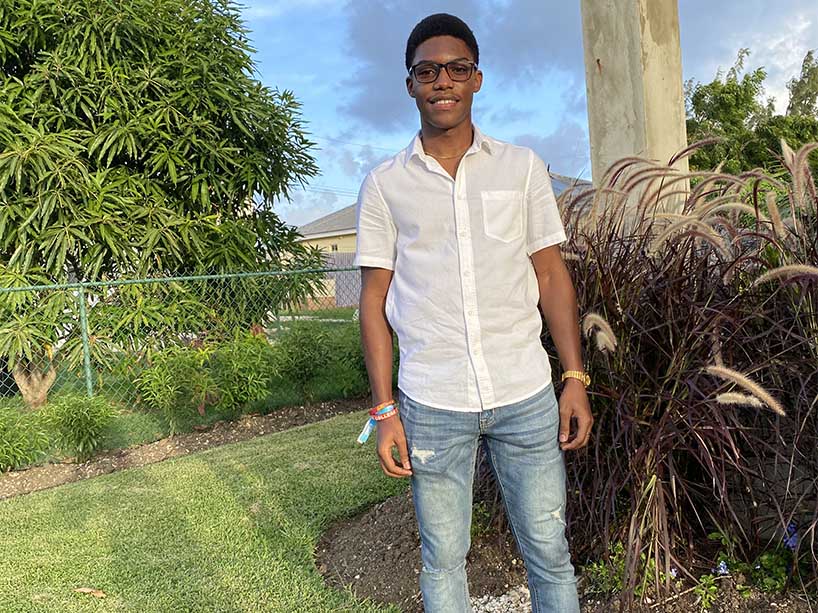Fourth-year international student shows the ropes to newcomers on campus

Kaylee Chu is a fourth-year professional communication student who recommends new students reach out to peers and family when adjusting to life in Canada.
Are you a first-year student looking for guidance on how to navigate the fall semester? Do you want to get involved in clubs and organizations on campus but don’t know where to start?
These questions have been on the minds of two new students– Nathan Eristhee, business technology management, and Sonali Chatrani, business management, both from Barbados.
We asked them to tell us their most pressing concerns about adapting to a new life in Toronto.
Then we posed these questions to Kaylee Chu, a fourth-year professional communication student from Hanoi, Vietnam, to give us the lowdown on how she navigated resources for international students and how she maintains a routine of healthy eating habits and regular exercise.
What can I do to have a smooth cultural adjustment and overcome homesickness?
While you adapt to your new environment and university life, know that the adjustment period is an inevitable and beautiful part of the journey.
The first few months can be overwhelming with school work, social life and daily routines, but take your time and find your pace. When I first came to Canada, I prepared myself by talking to different people inside and outside of school. I found that conversations with people helped me learn from their experiences and find out what could work for me.
I talked to my roommate and called my family back home when homesickness hit, and I realized that I was never alone. Your peers might also be experiencing challenges and it always helps to share and embrace them. It is also important to keep in mind that people have different ways to adjust and deal with things - slowly find your ways, whether it is going on walks, talking to friends, joining campus clubs, or exploring the city when you feel stressed. Have fun and work hard, but don’t forget to listen to yourself and take breaks.
How did you adapt to the climate in Toronto, and what kind of clothing would you recommend for the different seasons?
Even in my third year in Canada, the unpredictable weather in Toronto will never cease to surprise me. The sun might be out and shining but don’t be fooled, a snow storm might come before you know it.
My necessities for the winter are winter jackets, gloves, scarves and snow boots.
I thought I could survive without winter gloves, but holding a cup of coffee while walking on campus called for those warm gloves. And of course, a thick winter jacket is a must-have to tackle the commute to campus and everywhere I go. A scarf is not only a good touch to your aesthetic look, but also a powerful weapon to shield your neck and face from the brutal wind and falling snowflakes.

Sonali Chatrani is a first-year student from Barbados who wanted to get the scoop on meeting new people and resources on campus.
What are some things you wish you had known before coming to TMU?
International Student Support (ISS) advisors and appointments, Peer Mentoring, Student Life and Learning Support (SLLS) events, and program-specific resources. I seek resources that cater to my needs and priorities, and these differ for each student.
Some students might be shy when it comes to seeking academic support from instructors, but they are there to help you and explain whatever you are confused about or struggling with. I have learned to not hesitate when reaching out to people. As international students at TMU, you might have challenges that many can relate to while some do not understand, so feel free to seek support and make use of resources available to you.
What resources on campus have you found particularly helpful for international students?
I did not make much use of TMU resources before my third year. Although I was still able to navigate university life by myself, it could have been much smoother with incredible support from International Student Support (ISS) advisors and appointments. From course enrolment, immigration support and paper work, to learning and life guidance on cultural and social adjustments, the ISS advisors have shared many insights and offered helpful advice from their experiences talking to students from all over the world.
Don’t forget to look into ISS workshops and social events - they are a great way for you to meet new people in a comfortable and supportive environment.
Were there any unexpected challenges you faced as an international student? If so, how did you overcome them?
One of the challenges that I still occasionally face is keeping a healthy and sustainable routine inside and outside of school. As a student living far away from home, you will learn to allocate time within your day to attend courses and take breaks while maintaining consistent and healthy eating habits.
I was not intentional about my meal times during the first few weeks of school and often found myself getting tired and hungry easily. I started packing light snacks to bring to every class and to optimize my time on campus, and I attend dance or workout classes offered by TMU RAC to keep myself active.
School workloads can be overwhelming, and sometimes students take other parts of their lives for granted to solely focus on deadlines. You will be surprised how much physical exercise and a healthy eating routine can positively influence your life as a student.
My daily routine can fluctuate depending on specific times of the semester, such as finals season and reading weeks. Whether it is academics, personal, or social life, they all intertwine and affect each other in some ways. Find what works for you and keep it up!

Nathan Eristhee, who is starting the business technology management program at the Ted Rogers School of Management, was curious to know how he could overcome homesickness and have a smooth transition to Toronto.
Did you engage in any student clubs or organizations? If so, how did that enhance your overall university experience?
If you want to make the most of your academic journey, look into part-time on-campus jobs for international students on Career Boost! My first job on campus was working as an International Peer Ambassador in the ISS office in my third year, and in those two semesters, I met people that helped me along the way and made my university experience more meaningful.
Work hard and meet deadlines, but don’t forget that there are many opportunities and resources available to make the best use of your time at TMU, where you can seek help and make life-long connections.
Related stories: